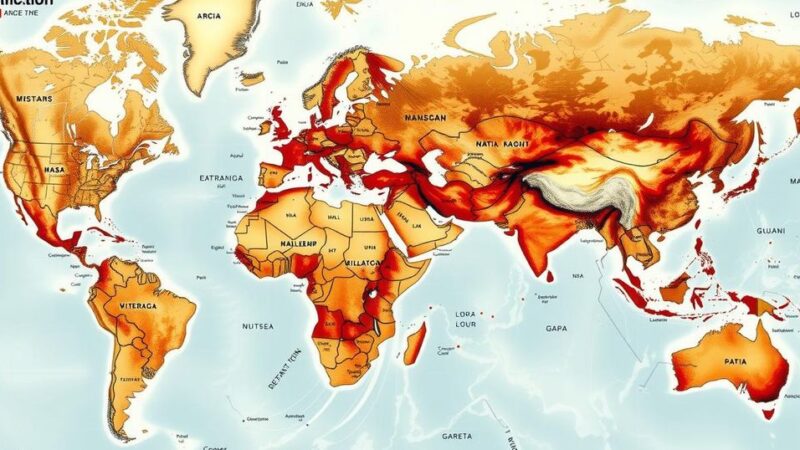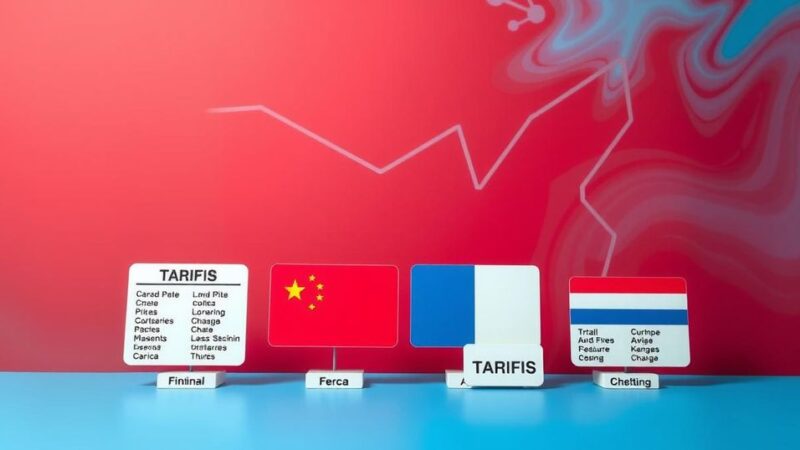Israel’s relationship with Lebanon is under review following Hezbollah’s military defeats, with shifts in power dynamics observed. Lebanon’s government is making new efforts towards sovereignty, influenced by war fatigue among citizens and weakened Iranian support. The changing landscape presents both an opportunity and a challenge for Israel, especially regarding Hezbollah’s enduring presence and identity.
Israel faces a complex relationship with Lebanon, particularly with Hezbollah, after the recent intensification of military operations. Intelligence from Israel’s Unit 8200 revealed that Hezbollah leaders have expressed trauma and lowered morale following recent losses. Orna Mizrahi from the Institute for National Security Studies (INSS) observes that Lebanon is experiencing a pivotal moment as its government seeks sovereignty over its territory, largely prompted by Hezbollah’s combat failures against Israel.
Three major factors contribute to this shift in Lebanon: first, widespread war fatigue among the populace, with over a million displaced citizens; second, Iran’s weakened influence following the loss of its central ally in the region; and third, the regime change in Syria, which has restricted Hezbollah’s resources from its traditional supply lines. Ahmad al-Shara’s radical Sunni leadership in Syria further complicates Hezbollah’s situation as he actively works against Iranian influence.
In response to Hezbollah’s military defeats, a US-brokered ceasefire has come into effect, allowing increased Israeli military presence along critical borders to safeguard its communities. Hezbollah has reluctantly aligned with other political factions to recognize General Joseph Aoun as the new Lebanese president, thereby decreasing its control over the Lebanese government.
Aoun’s administration has strengthened ties with Israel, echoing cooperative strategies from the 1950s. However, while Israeli intelligence has engaged with various Lebanese factions, including the Christian Maronites, the dynamics show a complex challenge for Israel, which now navigates a strained old alliance against a backdrop of renewed threats from Hezbollah.
Despite the changes, Dror Doron, an expert on Lebanon and Iran, notes that Hezbollah’s core identity as a resistance group remains intact. The organization’s ambitions persist, illustrated by the large turnout at Hassan Nasrallah’s funeral, suggesting continued support for its leadership and position. With significant armed capabilities still in place, Hezbollah’s disarmament remains an unlikely prospect.
Doron foresees that if Hezbollah faces substantial pressures to disarm or have its funding curtailed, the group may respond with renewed aggression, prompting further instability. Israel maintains a vigilant military stance in Lebanon, with no plans for withdrawal in the immediate future, despite the uncertainty surrounding US policy, especially under President Trump. As diplomatic negotiations commence regarding minor territorial disputes, Hezbollah’s likely rejection of formal ties poses ongoing threats to Lebanon’s internal political stability.
Mizrahi emphasizes that Hezbollah will strive for restraint in the current situation, yet Israel’s intelligence suggests that this ceasefire will only extend stability for a limited period. Predictions indicate a cautious watch on Hezbollah while understanding that the potential for renewed conflict lingers just beneath the surface.
In conclusion, Israel’s relationship with Lebanon is shaped by the evolving dynamics within the region, particularly concerning Hezbollah. Factors such as war fatigue among the Lebanese people, Iran’s diminished influence, and regime change in Syria have altered the landscape. Despite a temporary ceasefire and strategic Israeli engagement with Lebanese factions, Hezbollah’s entrenched identity and military capabilities present significant challenges, leaving prospects for lasting peace uncertain.
Original Source: www.thejc.com






